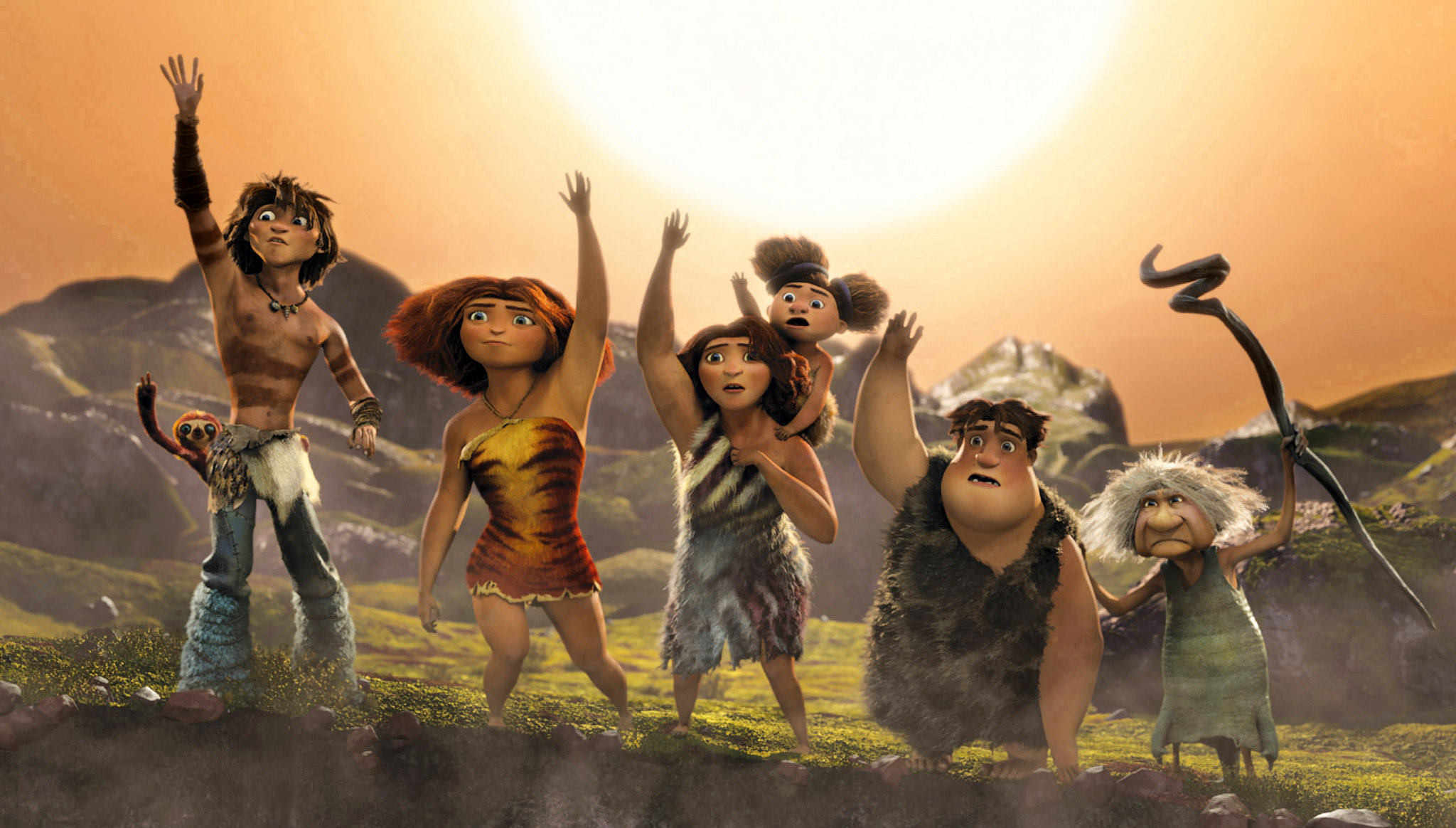
Dreamworks’ The Croods is a look at the inhibiting power of fear. In a manner of speaking, the cave-dwelling clan is led by their patriarch, Grug (voiced by Nicolas Cage), whose mantra is “Never not be afraid.” It’s protective nature often confines the rest of his brood to the darkness of their cave. Only allowed out when the sun casts light upon the land, much of their activities include avoiding anything unfamiliar. And, in this world of prehistory, everything is unfamiliar.
Of course, one of his young children, Eep (voiced by Emma Stone), wants to break free of the monotonous safety. For her, restraint is soul stifling and a waste of the already short lifespan they are bequeathed. Here, The Croods continues the trend of an empowered female protagonist. Like Tangled, Brave, and Frozen, The Croods removes the stigma of naiveté from the female and transfers it to the male.
While she is capricious, Eep is unable to completely reject her father’s teachings until she encounters Guy (voiced by Ryan Reynolds), an autonomous individual who has learned to utilize his surrounding to survive, as opposed to avoiding them. He makes shoes from what appear to be the feet of an elephant and learns how to create fire.
When the Croods’ cave is destroyed, they are thrust into a relationship with Guy and the Oedipal combat between Guy and Grug takes center stage, with Guy the one willing to take risks and Grug the one trying to shelter everyone from the threatening outside world. As if straight out of Plato’s “The Allegory of the Cave,” Guy’s ability to create fire limns a narrative about knowledge versus ignorance. The Croods – Grug withstanding – are eager to embrace the light that frees them from the shadows of ignorance, while the patriarch is more willing to reside in familiarity and safety.
At the same time, there is a rather cynical undertone to this film inasmuch as it portends that those who are unable to come up with new ideas are destined for extinction. While this might be true in the grand scheme of evolution, wherein a species unable to adapt will certainly die, it seems a rather dark foreboding when focused on the individual. At one point in the film, as the family and Guy face certain death, Grug sacrifices himself to save his family, noting that his strength is what he is good for, not his intelligence. While a noble sacrifice, his actions suggest that anyone unable to change the world should abandon living in it.
On the one hand, The Croods teaches us to embrace change. On the other, it completely elides the importance of those willing to work in a system created by someone outside of ourselves. This is not to suggest that we should all become automatons, completely willing to follow orders blindly for the betterment of mankind. However, each system needs people who understand how the system works in order to allow it to function and ultimately evolve. A system will not function if each facet of the system is constantly attempting to alter the system, lest the system become ripe with disorganization and chaos.
Ultimately, the darker undertones of the film are whitewashed by the bond re-kindled between Grug and his daughter, but if there is an honest sequel to this film, it will be disjointed and replete with resentment and acrimony.





